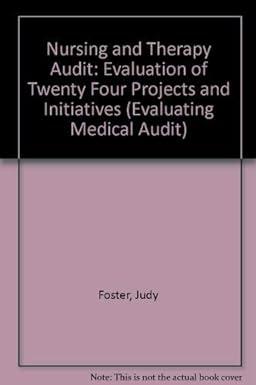Question
A company regularly applies a 7% allowance each for personal needs, fatigue, and unavoidable delay. It is estimated that the cost of an operator is
A company regularly applies a 7% allowance each for personal needs, fatigue, and unavoidable delay. It is estimated that the cost of an operator is $10 per hour, counting fringe and miscellaneous items. The practice used in this company for changing normal to standard time was to add the sum of allowance percentages to unity and then multiply the normal time by this amount. Normal time for a job is 10 minutes per cycle.
a. A consultant informed the company that the normal time should be multiplied by one and divided by one minus the sum of the allowance. What is the difference in the labor cost per piece (or cycle)?
b. Decide whether the companys former practice or the consultant is correct and support your answer.
c. Another consultant told the company that the unavoidable delay allowance should only be applied to the actual time the operator is not on personal allowance or resting from fatigue. How many fewer minutes of allowance time would result per 8-hour shift using this calculation than by applying the same allowance percentage to the entire shift?
Step by Step Solution
There are 3 Steps involved in it
Step: 1

Get Instant Access to Expert-Tailored Solutions
See step-by-step solutions with expert insights and AI powered tools for academic success
Step: 2

Step: 3

Ace Your Homework with AI
Get the answers you need in no time with our AI-driven, step-by-step assistance
Get Started


